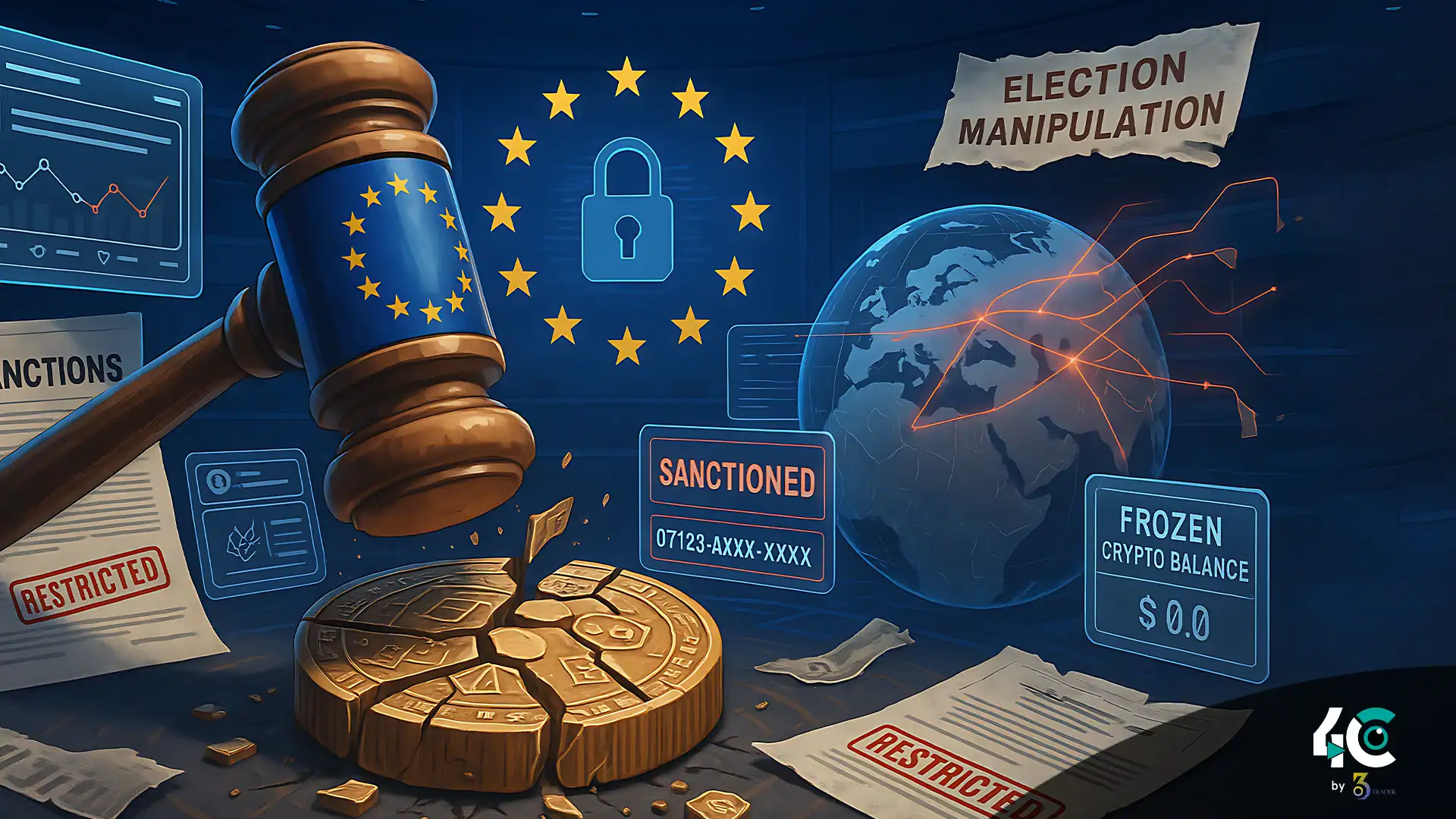EU Voices Concern Over Crypto-Funded Interference in Elections and Russia
The EU is consistently condemning the use of cryptocurrencies in global conflicts. As a result, more sanctions have been levied against pro-Russia propaganda, election meddling and evasion of sanctions.
Nine individuals and six entities have been sanctioned by a decision published under the EU’s Common Foreign and Security Policy for financing and spreading disinformation using digital assets in favor of Russia.
Simeon Boikov, a Kremlin-linked influencer better known as “AussieCossack,” is one of the well-known people named in the sanctions. According to blockchain intelligence firm TRM Labs, Boikov used cash and crypto donations through anonymous payment channels, like unregulated Russian crypto exchanges, cash-to-crypto services and the darknet.
TRM Labs connected Boikov to an event where a phony video, falsely suggesting that votes were altered as part of the 2024 U.S. election in Georgia, was circulated in a larger scam.
Moldova’s Elections Influenced by Stablecoin Scheme
The sanctions also target A7 OOO, a company established by Ilan Shor, a Moldovan oligarch who is on the run. The authorities suspect the creators of having dealt with the purchase of votes and meddling in Moldova’s presidential elections of 2024, as well as the referendum over the accession of Moldova to the EU.
According to authorities, Shor used the firm to siphon off more than $1 billion from Moldovan banks. The business is associated with A7A5, a ruble-pegged stablecoin, which became the preferred currency on Grinex, a new Russian cryptocurrency exchange believed to replace the previously sanctioned Garantex.
According to the intel, Grinex and A7A5 were developed to bolster trade between Russia and China, especially with dual-use goods, items that can be used for both civilian and military purposes like semiconductors, communication gear and even weapon manufacturing materials.
European Union Takes Action Against Digital Influence Networks
TRM Labs said the EU is making a bigger strategic move, which is meant to counter the disinformation narratives but also undercut the financial infrastructure behind them.
TRM Labs stated that the EU is targeting both the individuals and the crypto infrastructure fueling their activities, thus making it clear that they will disrupt the entire lifecycle of influence operations—from fundraising to distribution.
Conclusion
The new sanctions show how cryptocurrencies are being used against each other in the global arena. Because digital assets are anonymous and easy to use, this makes them go-to instruments for hostile actors looking to bypass financial controls and interfere with the democratic process.
The European Union is setting a trend for more regulations in the future. It shows that the misuse of crypto will not go unpunished. As disinformation campaigns become more sophisticated, the EU’s holistic approach could provide a blueprint for other democracies hoping to shield themselves against the digital onslaught.



























